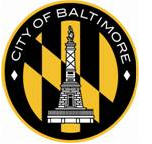Mayor Scott Increases Total Commitment to Addressing Food Insecurity to $26 Million
Friday May 20th, 2022

FOR IMMEDIATE RELEASE
City Announces an Additional $11 million in American Rescue Plan Act Funding to Build Equitable and Resilient Food System
BALTIMORE, MD (Friday, May 20, 2022) - Mayor Brandon M. Scott has announced an additional allocation of $11 million in American Rescue Plan Act (ARPA) funding towards building an equitable and resilient food system to mitigate the negative impacts associated with food insecurity during and after the COVID-19 pandemic. This brings the City’s total commitment to providing nutritional security for Baltimoreans to $26 million.
The $11 million investment will support five key pillars of the Department of Planning's Food Policy & Planning Division's nutritional security programming: 1) Continuation of produce box distribution; 2) Online SNAP fruit and vegetable incentives; 3) Expansion of nutrition incentives at farmers’ markets; 4) MedStar Harbor Hospital’s Good Food Rx program; 5) The Farm Alliance of Baltimore’s Black Butterfly Urban Farmer Academy. This comprehensive approach will improve access to healthy, affordable food while addressing the food supply chain failures seen throughout the pandemic.
Today’s announcement is on top of the $16 million that Mayor Scott allocated last fall to the Baltimore City Health Department towards providing 20,000 fresh meals per month, 1,200 grocery boxes per month, and a food delivery service for seniors and home-bound populations.
"Food insecurity has skyrocketed due to the pandemic, and there is a genuine need to address these issues for our residents," said Mayor Brandon M. Scott. "We have learned invaluable lessons over the last two years as the fragility of our food system, and the ability to feed our residents was exposed during the pandemic. This investment will help comprehensively address the nutritional insecurity our residents face daily by promoting food resiliency and equity, increasing access to healthy, affordable food, and addressing the food supply chain failure by building the Back, Indigenous, and People of Color local food supply chain."
"The Department of Planning’s Food Policy and Planning Division has been a national and regional leader through our COVID-19 Emergency Food Response," said Taylor LaFave, Chief of Food Policy and Planning. "We partnered with over 100 community organizations to distribute over 1.7 million boxes of food, totaling over $35 million, all 100% reimbursable by FEMA. This effort helped resolve food system issues, and we are excited that it has culminated in this funding to continue to supply food insecure residents with healthy food options while creating an equitable and resilient urban food system."
The COVID-19 public health emergency exposed the fragility and inequities of Baltimore City’s food system. As a direct result of the pandemic, food insecurity rates increased from 18% to 21.7% in Baltimore City (Feeding America), with 33% of children being food insecure. Similarly, SNAP participation skyrocketed, increasing from 25% of Baltimore City residents to over 33% (approximately 200,000 people). In order to improve access to nutritious foods while mitigating COVID-19 transmission, the Food Policy and Planning Division developed the City’s COVID-19 Emergency Food Response. A crucial component of this strategy was to distribute produce outdoors at churches, community organizations, schools, and rec centers. We have provided over 175 million servings of fresh fruits and vegetables for residents in Healthy Food Priority Areas through this effort. The City is actively working to restart produce box distribution utilizing ARPA funding at select community distribution sites.
"The COVID-19 public health emergency has compounded the needs for food insecure populations," said Shamiah Kerney, Chief Recovery Officer and Director of the Mayor’s Office of Recovery Programs. "ARPA funding is designed to expand programs like these to meet the needs of Baltimore’s most vulnerable residents."
This ARPA investment allows the Food Policy and Planning Division to continue to address the COVID-19 food insecurity crisis while developing long-term solutions for a more equitable food system. A vital component of this strategy focuses on improving nutritional security and distributing resources to BIPOC communities that COVID-19 has disproportionately impacted due to long-standing systemic health and social inequities. Overall, this is an innovative investment because it is a comprehensive food systems strategy, not just one project in one community.
About the Mayor’s Office of Recovery Programs
The American Rescue Plan Act (ARPA) provided $641 million to the City of Baltimore in response to the COVID-19 public health emergency and its negative economic impacts. Mayor Brandon M. Scott has established the Mayor’s Office of Recovery Programs to transparently and effectively administer this funding on behalf of the City.
For the most up-to-date information regarding proposals, funded projects, and project progress visit our ARPA Reporting center at arp.baltimorecity.gov/dashboard.